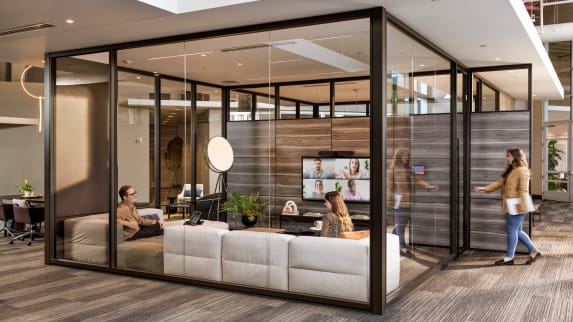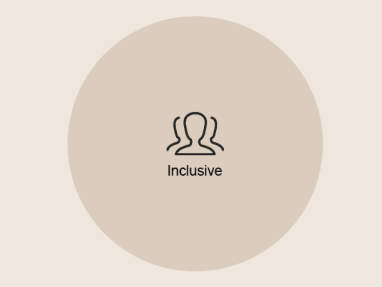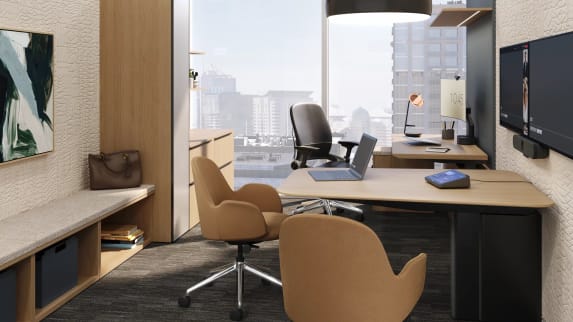Law offices are adapting to support new ways of work.
Steelcase researchers discovered what legal professionals need and how to design legal offices that meet these needs.

A New Legal Precedent
Steelcase conducted robust research to give an evidence-based look at how today’s spaces can better support law practitioners. We found that legal professionals are coming into the office to collaborate and connect, and that work modes are drastically changing.
Law office designs are now adapting to support the desired work experience, with three key factors driving their workplace experience: employee inclusion, flexibility and regeneration.

Law firms need to bring more diverse voices into the conversation to design for everyone’s needs, work modes, and work processes.

Law firms need to design for flexibility of space, tools, and technology to create higher-performing experiences.

Law firms & legal offices need to support emerging employee values with a work experience that is regenerative and restorative.
New Design Typologies
Law firms are making changes and existing space design typologies are transforming to meet the new expectations around flexible work, employee inclusive of everyone and creating regenerative experiences. These expectations are impacting the functionality of traditional spaces shifting to be more high-performing and multi-purpose. Explore how this is reflected in spaces like private offices, conference rooms, virtual courtrooms and community centers.

Community Center
A large community center encourages interacting with colleagues, authentic interactions and provides a central hub to support the culture of the office. The wide range of applications in the space allows for choice and inclusivity, where employees can find a comfortable space to work and connect.

Shared Private Office
Quick switch private office spaces allow users to do focus work, while also being able to seamlessly shift to collaborative work with in-person or remote participants. Secure storage addresses varying durations of reservations in a shared office.

Virtual Courtroom
Remote participants are easily viewed while sharing content, allowing for a seamless in-room and remote experience during legal proceedings. Users are evenly distributed across a curved table, allowing optimal viewing.

Conference Center
This high-end conference room can support large groups and features an elegant, sophisticated, timeless aesthetic. Paired with conference seating and easy access to power and technology, this space supports both in-person and remote hosting.

Owned Private Office
The private office, a dominant typology within the law profession, is changing as law firms evolve the purpose and function of the private office in a hybrid world. The space needs to enable users to seamlessly shift between focus and collaboration with the ability to host a mix of in-person and remote colleagues.

